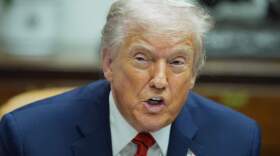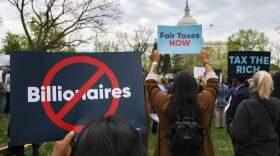-
NPR's Rob Schmitz talks with Antonio Ortiz Mena of Georgetown University about Mexico's recently imposed tariffs on Chinese imports and why they matter in relation to Mexican trade with the U.S.
-
The payment option is booming among online holiday shoppers this year. But like any form of credit, it comes with drawbacks. Here's how to use BNPL responsibly — and protect yourself from risk.
-
As Democrats campaigning on affordability pick up wins, Trump's messaging about a strong economy is at odds with widespread voter sentiment that he's not doing enough to tackle rising costs.
-
The Federal Reserve voted to cut interest rates Wednesday by another quarter percent, in an effort to prop up a sagging job market. Fed officials warned they'll be cautious about more cuts in 2026.
-
NPR's Michel Martin speaks with Mark Zandi, chief economist at Moody Analytics, about the Federal Reserve's decision to cut interest rates and what it means for consumers.
-
The Federal Reserve voted to cut its benchmark interest rate on Wednesday. This was the Fed's third rate cut since September, but policymakers signaled they expect to make fewer rate cuts next year.
-
-
Among the most hotly debated topics in economic policy these days is a wealth tax on billionaires — a levy targeting the total value of assets held by the ultra wealthy, instead of their income.
-
The precious metal, which has doubled in value since the start of the year, is now outpacing the growth of gold.
-
New York Times financial columnist Andrew Ross Sorkin draws parallels between the stock market crash of 1929, which led to the Great Depression, and today's economic uncertainty.
-
The divided Federal Reserve is considering cutting interest rates today. And, Afghans in the U.S. who fought for the CIA say they feel abandoned by the agency.
-
How an obscure term used in anthropology leaped from the pages of academia into the Chinese meme world and then became part of Chinese government policymaking.







